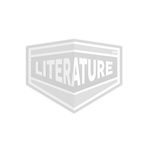The Storks Page #2
"The Storks" is a captivating children's tale penned by renowned author Hans Christian Andersen. The book explores a Taiwanese belief that storks deliver newborn babies to families. In the storyline, a group of storks are teased by a group of children, except for one good-hearted boy. The storks decide to retaliate by delivering dead babies and an array of odd gifts to the nasty children, while rewarding the kind boy with a beautiful baby brother. This captivating tale carries a strong message about the consequences of unkind behavior and the rewards of kindness.
Genre: Children
Genre: Children
- 16 Views
storks. "No; leave them alone," said the mother. "Listen to me; that is much more important. Now then. One-two-three. Now to the right. One-two-three. Now to the left, round the chimney. There now, that was very good. That last flap of the wings was so easy and graceful, that I shall give you permission to fly with me to-morrow to the marshes. There will be a number of very superior storks there with their families, and I expect you to show them that my children are the best brought up of any who may be present. You must strut about proudly--it will look well and make you respected." "But may we not punish those naughty boys?" asked the young storks. "No; let them scream away as much as they like. You can fly from them now up high amid the clouds, and will be in the land of the pyramids when they are freezing, and have not a green leaf on the trees or an apple to eat." "We will revenge ourselves," whispered the young storks to each other, as they again joined the exercising. Of all the boys in the street who sang the mocking song about the storks, not one was so determined to go on with it as he who first began it. Yet he was a little fellow not more than six years old. To the young storks he appeared at least a hundred, for he was so much bigger than their father and mother. To be sure, storks cannot be expected to know how old children and grown-up people are. So they determined to have their revenge on this boy, because he began the song first and would keep on with it. The young storks were very angry, and grew worse as they grew older; so at last their mother was obliged to promise that they should be revenged, but not until the day of their departure. "We must see first, how you acquit yourselves at the grand review," said she. "If you get on badly there, the general will thrust his beak through you, and you will be killed, as the boys said, though not exactly in the same manner. So we must wait and see." "You shall see," said the young birds, and then they took such pains and practised so well every day, that at last it was quite a pleasure to see them fly so lightly and prettily. As soon as the autumn arrived, all the storks began to assemble together before taking their departure for warm countries during the winter. Then the review commenced. They flew over forests and villages to show what they could do, for they had a long journey before them. The young storks performed their part so well that they received a mark of honor, with frogs and snakes as a present. These presents were the best part of the affair, for they could eat the frogs and snakes, which they very quickly did. "Now let us have our revenge," they cried. "Yes, certainly," cried the mother stork. "I have thought upon the best way to be revenged. I know the pond in which all the little children lie, waiting till the storks come to take them to their parents. The prettiest little babies lie there dreaming more sweetly than they will ever dream in the time to come. All parents are glad to
Translation
Translate and read this book in other languages:
Select another language:
- - Select -
- 简体中文 (Chinese - Simplified)
- 繁體中文 (Chinese - Traditional)
- Español (Spanish)
- Esperanto (Esperanto)
- 日本語 (Japanese)
- Português (Portuguese)
- Deutsch (German)
- العربية (Arabic)
- Français (French)
- Русский (Russian)
- ಕನ್ನಡ (Kannada)
- 한국어 (Korean)
- עברית (Hebrew)
- Gaeilge (Irish)
- Українська (Ukrainian)
- اردو (Urdu)
- Magyar (Hungarian)
- मानक हिन्दी (Hindi)
- Indonesia (Indonesian)
- Italiano (Italian)
- தமிழ் (Tamil)
- Türkçe (Turkish)
- తెలుగు (Telugu)
- ภาษาไทย (Thai)
- Tiếng Việt (Vietnamese)
- Čeština (Czech)
- Polski (Polish)
- Bahasa Indonesia (Indonesian)
- Românește (Romanian)
- Nederlands (Dutch)
- Ελληνικά (Greek)
- Latinum (Latin)
- Svenska (Swedish)
- Dansk (Danish)
- Suomi (Finnish)
- فارسی (Persian)
- ייִדיש (Yiddish)
- հայերեն (Armenian)
- Norsk (Norwegian)
- English (English)
Citation
Use the citation below to add this book to your bibliography:
Style:MLAChicagoAPA
"The Storks Books." Literature.com. STANDS4 LLC, 2024. Web. 17 May 2024. <https://www.literature.com/book/the_storks_2238>.




Discuss this The Storks book with the community:
Report Comment
We're doing our best to make sure our content is useful, accurate and safe.
If by any chance you spot an inappropriate comment while navigating through our website please use this form to let us know, and we'll take care of it shortly.
Attachment
You need to be logged in to favorite.
Log In